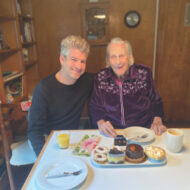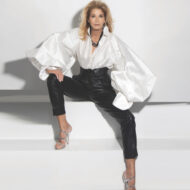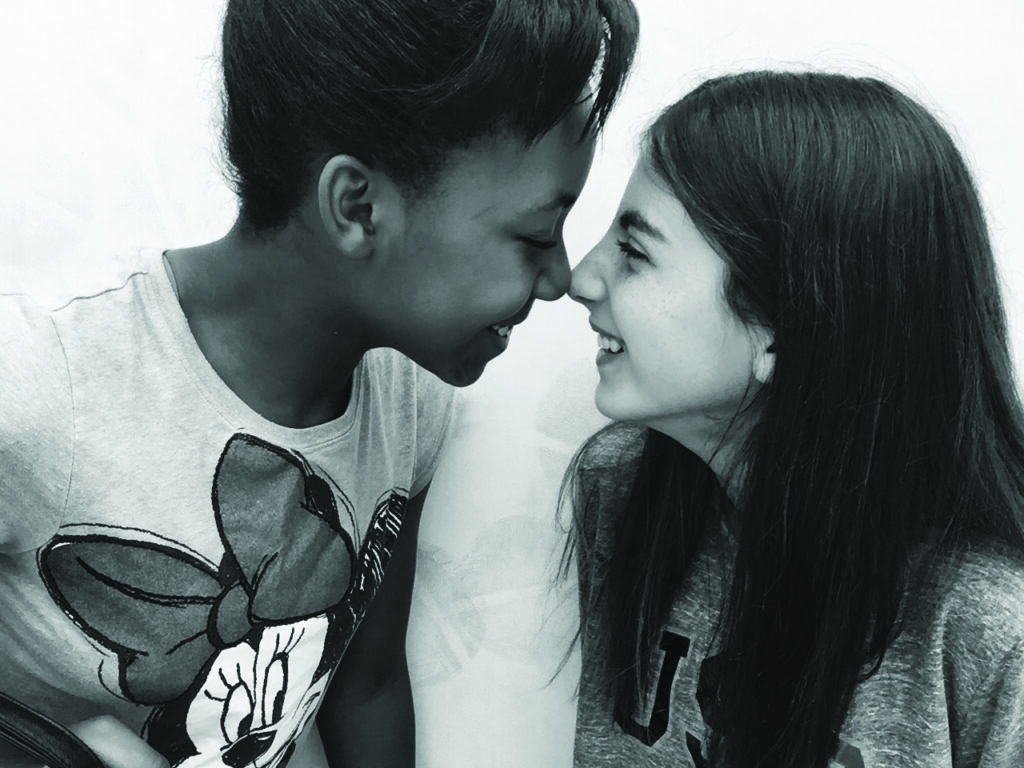
Ever since I can remember, I have lived with diversity. I was born in Tehran, adopted as a baby and raised in Sweden. I knew that being darker was different, and in Sweden, there were even more blond people then there are today. Racism existed around me as a young child; you don’t necessarily know why at that younger age, you just know it really hurts. As time passed, I knew I didn’t want to stay there, so I moved to New York City in ’94. I finally felt a sense of freedom, of belonging; it was magical, it was home.
Today, in our mudroom, I have a piece of art hanging; it depicts an ice cream cone, with the words “Life Is Too Short to Be Vanilla.” It’s been there for 10 years now, always giving room for some interesting conversations with my kids’ friends as they have come to our home. For me, it has always been about being proud to be able to offer my own experience growing up with my children, giving them a broader and deeper perspective of what life has to offer by being open to the differences that people have, and the beauty in embracing that. Living it every day is the only way to truly understand it. And having a strong voice and teaching others where you can. If we let it, diversity is really an opportunity to teach one another to live with more humanity and compassion.
Throughout my journey as a photographer, I have been able to find myself in so many of the stories I got to capture with my lens. For me, that’s what makes life so incredibly meaningful, being vulnerable with both the pain and the joy of our stories. These images are a glimpse and a reflection of those connections. They have taught me so much, and continue to. As my friend Don Lemon said (echoing the words of philosopher George Santayana) when I photographed him for this issue of Purist: “Those who forgot the past are doomed to relive it.” So, may we all be willing to dive deep.
Onward!
–Cathrine White
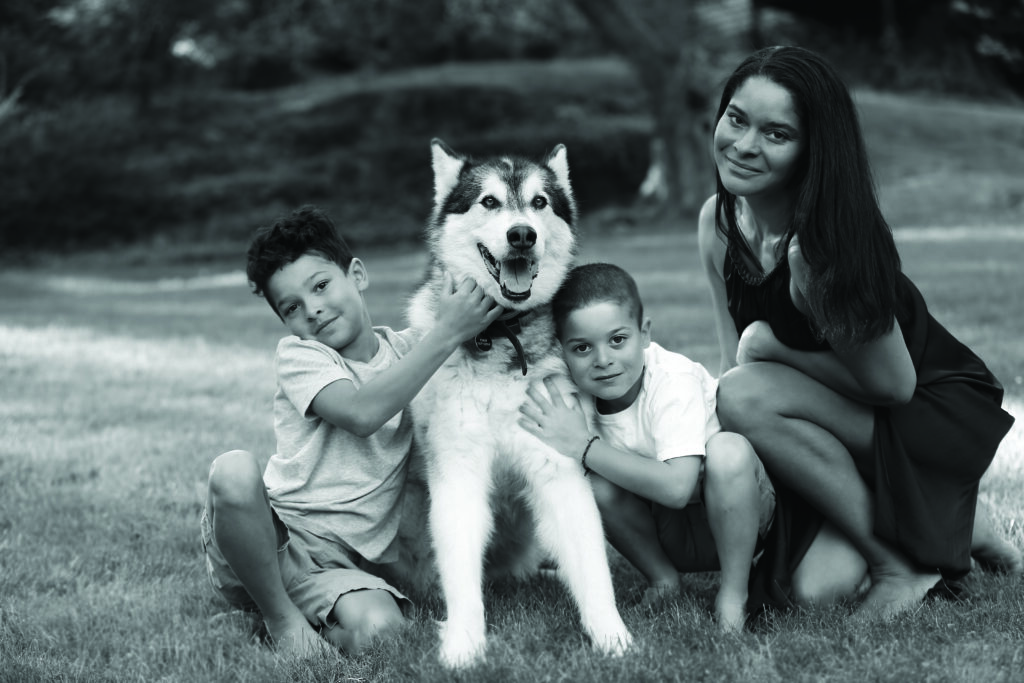
Jillian Gumbel, Yoga For Athletes teacher
For people who might live in a more homogeneous community, how do you create authentic, diverse experiences for your children to learn about others?
My sons are exposed to diversity largely through their family. Our family is salt-and-peppered with different shades of colors, culture and history. Born from African American and Jewish heritage with cousins, uncles, grandparents and ancestors that represent a wide variety of appearances, traditions and beliefs, Bryant, 8, and Alan, 6, are being raised to not view color as something that divides people. The basic structure of where they come from has been built on grounds of variety and inclusion.
What behaviors are you modeling for your children and how do you continue to build their self-esteem during a time like this?
The love between me and my husband, Will, is a model of the boundless love of two people living in different colored bodies. It’s our job to love and shelter our children, while still letting the outside world be known and experienced. They are aware that they haven’t been able to attend school because of a pandemic, and they are equally aware that people are protesting the mistreatment of people of color. I remind my sons every day through my own self-care how to stay positive and grateful during these difficult times. Healthy eating, exercising, reading, and time outside in nature are things they see as my sources of joy. It’s common for Alan to do yoga with me during one of my online classes, and for Bryant to sit with me and read. I think the best thing you can give your kids to build their self-esteem is being present with them and making them feel that the time you spend with them is important. During the past few months, being together as a family and being forced to be present for one another has been a moving and powerful experience for the four of us.
How are you examining your own biases? What has shifted within you during this time?
These past few weeks have been a time of deep sadness and reflection for me. I’ve felt both seen and heard, hurt and disappointed by people and their actions or lack thereof, even those close to me. I’ve been forced to prioritize the people and things that are truly important to me to protect my peace. Ironically, now more than ever I feel power in my identity as a woman of color. The bias that the color of my skin could deem me “less than” is so preposterous that I find strength just in knowing its absurdity. My focus going forward is to continue to raise my boys to be loving, kind and understanding and to model healthfulness, strong character and self-love.
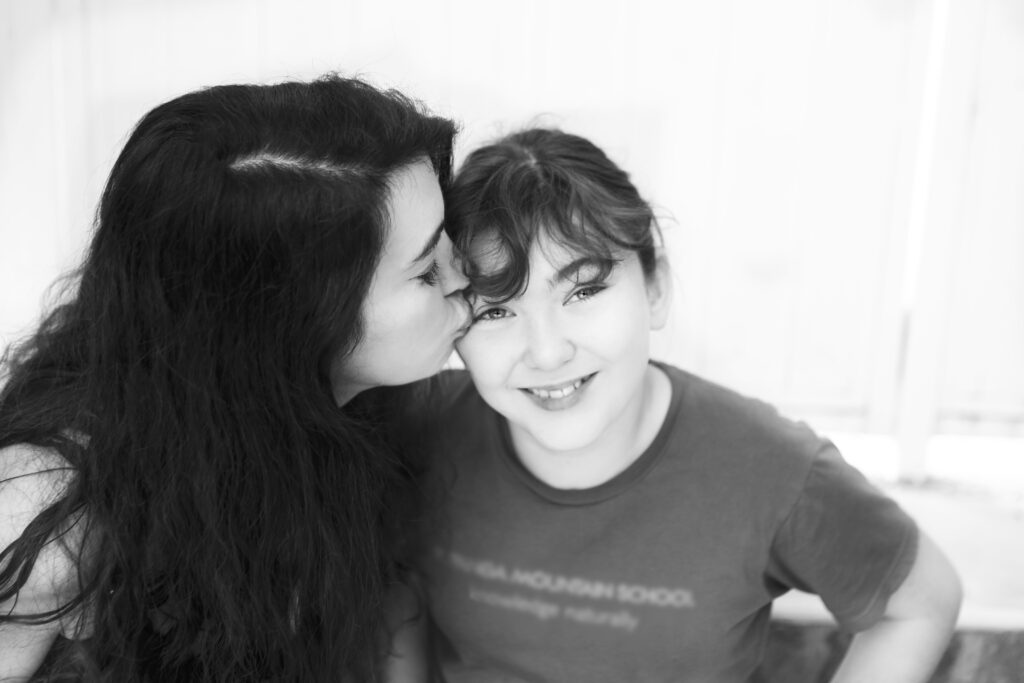
Shiva Rose, founder of clean beauty line Shiva Rose Skincare and author of the book Whole Beauty
For people who might live in a more homogeneous community, how do you create authentic, diverse experiences for your children to learn about others?
For people who don’t live in a multicultural community, I would make sure to travel as much as I could. Traveling is such a beautiful way to open a child’s eyes to the various cultures, languages, and opinions of other people. There is nothing like seeing firsthand how diverse our world is. That also is a way to imprint the experience in the neural pathways of the child’s brain, so it will always endure. I would also make film, music and art a part of their upbringing. Watching amazing stories is a very powerful way to expose children to the truths of our world.
What behaviors are you modeling for your children and how do you continue to build their self-esteem during a time like this?
I’m trying to show my children that our actions are equally as important as our words. If they see me involved with bringing changes and social justice in the world, it will naturally influence them. I build their esteem by reminding them how their big, compassionate hearts can change the planet.
How are you examining your own biases? What has shifted within you during this time?
I have always felt that I was of many cultures and races. This could be due to being half-Persian and half-American. Also growing up in LA, I am lucky enough to have had quite a multicultural environment. With that being said, it’s always a good reminder to look at ourselves, truly look into our souls and check in to see if our hearts are aligned with justice and equality for all. I’ve always been one to question authority and unite with humanity. It’s nice to see that is being applauded in our country right now.
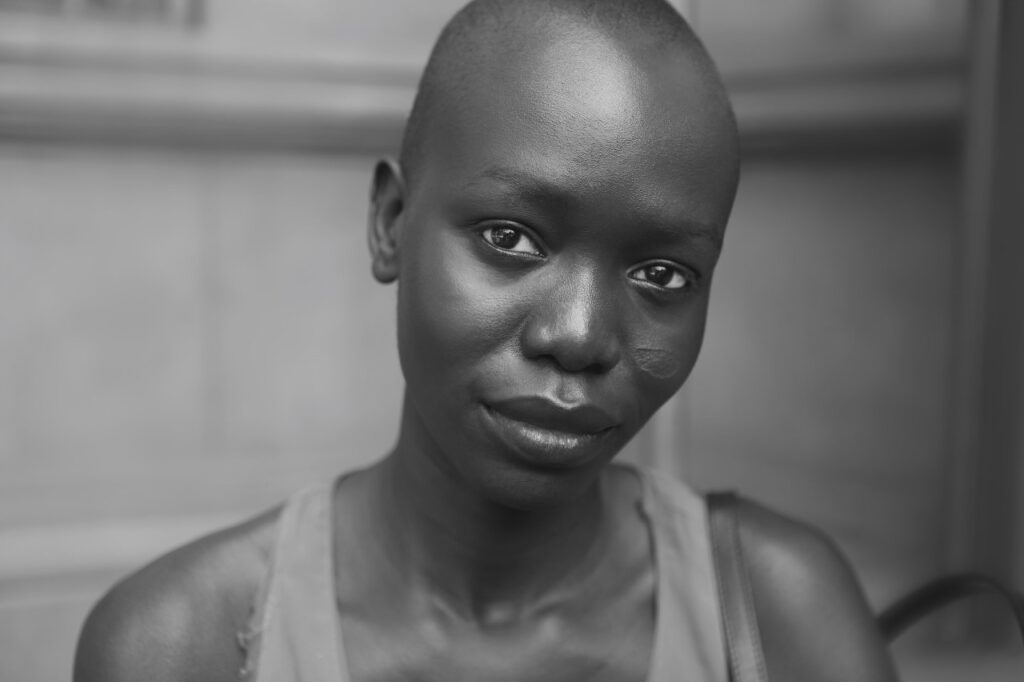
Mari Agory, model and co-founder of Mama Talks
For people who might live in a more homogeneous community, how do you create authentic, diverse experiences for your children to learn about others?
My children (ages 3 and 1.5), being half South Sudanese, one quarter Italian and one quarter Jewish, are the drop of diversity in our community. We live in downtown Manhattan. Unfortunately, we don’t get to see a lot of other children of color, but I view this as an opportunity to allow my children and myself to be the ones to show and inform people in our community about other cultures. Having come from a country with vast traditions and values, it’s extremely important for me to ensure that my boys understand the complexity of people, not only in our community but around the world. We are doing this through simple measures. I truly believe the simplest way to start introducing different cultures and creating authentic, diverse experiences for preschool-age children is through music and language, and building on that as they grow.
What behaviors are you modeling for your children and how do you continue to build their self-esteem during a time like this?
This is a hard one, because I sometimes find myself falling short on the very things I want my boys to epitomize as children and adults—patience, kindness and compassion. My sons are so different from each other, it’s almost comical; their differences in personality have helped me to allow them both to be themselves at all times. I feel this will afford them the confidence they need to go through life authentically with courage and grace. Life is challenging; we often go through tough times so that we may be rewarded with the wisdom, knowledge and strength we need to continue to endure. If my boys can grow up to understand the power of grit, the world is their oyster and they will be able to make great contributions to it through hard work and perseverance.
How are you examining your own biases? What has shifted within you during this time?
The past couple of months have certainly been the most uncomfortable in terms of uprooting and unlearning things that I’ve come to discover have been conditioned in me throughout my 30-year existence. One thing I know for certain is that people are seeking to be seen, heard and loved. Learning and coming to some level of awareness of my subconscious beliefs, conditioning and behaviors was the first step in understanding and unpacking the layers of life experiences, traumas and biases, thereby allowing me to tap into my authentic self as a human being. It’s been through experiencing stillness that I am able to discover a space of power and vulnerability within me. In that space is where I am able to feel a sense of human connectedness, regardless of race, religion, or any other cultural-ideological constructs put in place to divide us all.
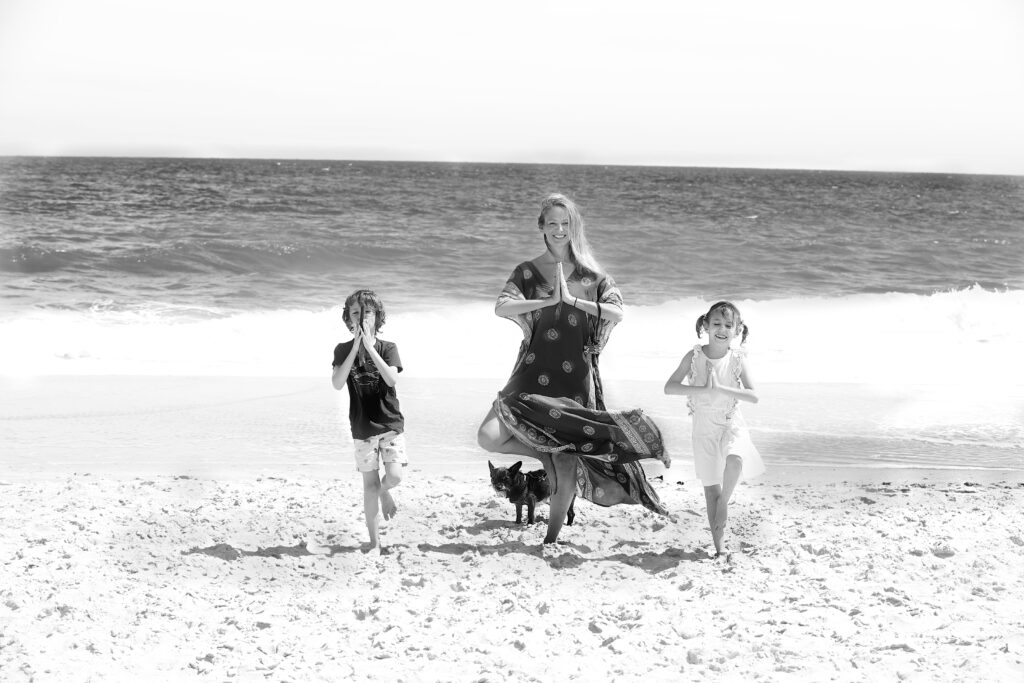
Jennifer Justice, CEO and co-founder, The Justice Dept
What behaviors are you modeling for your children and how do you continue to build their self-esteem during a time like this ?
My twins turned 7 in quarantine, and have been to multiple protests and stumped for Democratic local candidates—going door-to-door—so we’re a pretty activist family. I have dedicated my career to the equality of women through financial equity, so fighting for—and teaching my kids on a daily basis about—justice, empathy and compassion is super-important to me.
As a single mom, it’s been necessary for me to have more difficult conversations about how things aren’t the same, like families, as well as things that aren’t equal or fair, and I don’t try to hide the real world from them. They are so much more capable of processing information than we give them credit for at this young age, so it’s important to have conversations about how being different is so important and makes the world so much more just and interesting.
It’s not enough for them to know that we are all the same on the inside. They still need to understand that people often don’t get to see the inside, because they are judged by the outside in different ways than my kids. It helps prepare them to stand up for themselves and others, to build their self-esteem by showing how all differences are important and interesting—including their own—and that the fight for equality for everyone, regardless of their race, gender, religion, socioeconomic background or sexuality, is the way to a better world.
How are you examining your own biases? What has shifted within you during this time?
Teaching my children about their privilege and how to be anti-racist while examining my own is a daily exercise and something that needs to be discussed all the time. Working in hip-hop for artists in the music industry for 20 years, I witnessed racism firsthand over and over again. It is very ingrained in our society.
During COVID, it was easy to slip into feeling sorry for myself—we were all experiencing grief for our old lives, and fear around our future—but ultimately if we were healthy and had financial means we should be grateful. I allowed myself this self-pity and then snapped out of it quickly when the murder of Ahmaud Arbery happened. It was then that I was reminded that I have work to do—I can jog down a street, fall asleep in a car, and buy Skittles without fear of being murdered for the color of my skin. My kids saw that photo of George Floyd—they know how he died and that was heartbreaking enough for them to see a man murdered. But it’s important for them to know that it was because of the color of his skin—to learn about systemic racism and what that means—and to spot it, even in themselves, and fight against it. It is incumbent upon white people to fix systemic racism.
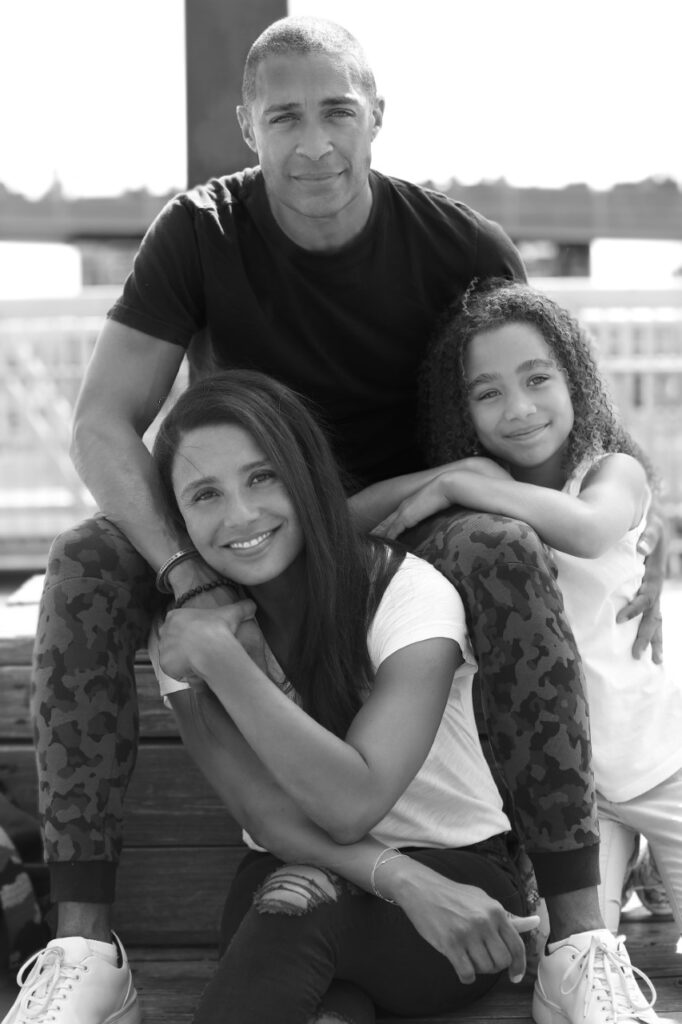
Marilee Holmes, Chief of Staff, Roc Nation
For people who might live in a more homogeneous community, how do you create authentic, diverse experiences for your children to learn about others?
The easy answer would be to say that you can teach your children to appreciate multiethnic food, languages, religion, music, architecture, movies, books, histories, hairstyles, fashion and the many other aspects of diversity that can initially be taught right at home, at school, at church, even at the library. But in addition to what can be textbook-taught, regardless of where you choose to live, if you look up and really take in the world around you, you will realize that it is not as homogeneous as you think.
However, you have to be the change for yourself and your children. Be active in looking up and around, not just to observe, but to ask people questions about their stories so you can understand who they are and where they come from. Respect comes from not seeing everything through your own lens. And you can start with small steps in your own neighborhood. For example, who are the people in service positions around you, who are disproportionately black and brown people, working hard every day to make your life easier—your local grocery store clerk, or mailman, or sanitation worker? Have you taken the time to learn their names, ask their stories, to say “thank you” to them and the families they leave at home every day to do their jobs on your community’s behalf? Show your children those small steps, so they can see what respect for others looks like.
What behaviors are you modeling for your children, and how do you continue to build their self-esteem during a time like this?
I want our daughter to be, first and foremost, kind. But I also want her to be curious. I want her to be confident in asking questions, seeking answers and exercising her voice. In today’s Black Lives Matter movement, we have talked about the tragedies, the responses, and explained our current reality as best as possible. We’re listening to her innocent questions and talking through it all. We’re also showing her, by watching the news, seeing protests, and waving to those marching, that change is happening now. And as demonstrations are interspersed with stronger messages against racism and dedication to fairness, it has been a great place to start a dialogue about what these topics mean in light of what she’s witnessing, so that she can understand that although the world is far from perfect, organizations and individuals from all backgrounds are taking important proactive measures, and she can have a voice to be the change that is good.
How are you examining your own biases? What has shifted within you during this time?
As a woman and a person of color, I have always known the challenges I face. As I reflect on my daily experiences, I want to ensure that the societal messages that I’ve internalized do not in any way limit my child’s dreams. What has shifted for me, during such a significant challenge to this unfortunate status quo, is my awareness that there are far more people than not who view these dual identities as powerful and beautiful gifts rather than inferior qualities. Stated plainly, my shift has been one of positivity and optimism for our future. I have come to be less cynical in thinking that others, particularly white men, assumingly doubt or think less of me. Instead, I am taking this time as an opportunity to have people fully see and hear me.





